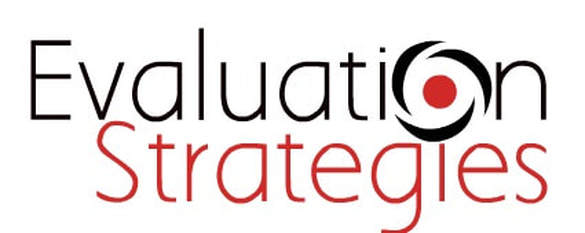Evaluating needs vs. wants
In today’s consumer-driven society, it is easy to fall into the trap of prioritizing wants over needs. The constant bombardment of advertisements and societal pressure often lead us to believe that acquiring more material possessions is the key to happiness and fulfillment. However, evaluating our needs versus wants is crucial to making informed decisions about our spending habits.
Needs can be defined as the essential elements necessary for survival and functioning in society. These include things like food, shelter, clothing, and healthcare. On the other hand, wants are the desires and preferences that can enhance our quality of life but are not essential for basic survival. They encompass things like luxury items, entertainment, and travel experiences.
Distinguishing between our essentials and desires is vital for our financial well-being. By understanding the difference, we can prioritize our spending and make informed choices about where to allocate our resources. Evaluating needs versus wants allows us to identify what is necessary for our well-being and avoid unnecessary expenses that can drain our finances.
In a world where instant gratification and impulsive buying are encouraged, it is crucial to stop wasting money on things that do not align with our genuine needs and long-term goals. =By practicing frugal decision-making in budgeting, we can develop a strategy to reduce spending= and focus on what truly matters. This approach enables us to allocate our resources wisely, save for the future, and achieve financial stability.
Evaluating needs vs. wants
Evaluating needs vs. wants is an essential exercise in personal finance that helps us prioritize our spending and make informed decisions. When assessing our needs, we focus on the essential requirements for our well-being and survival. These may include food, shelter, clothing, healthcare, and transportation. Identifying and prioritizing these needs is important to ensure we allocate our resources effectively and meet our fundamental obligations.
On the other hand, wants are the desires and preferences beyond our basic needs. These can vary significantly from person to person and may include luxury goods, entertainment, travel, and non-essential services. When evaluating wants, it is crucial to consider their value and impact on our overall financial well-being. We can make conscious decisions that align with our financial goals and values by assessing our wants’ urgency, importance, and long-term benefits.
Personally, my needs include:
- A safe and comfortable living environment.
- Nutritious food.
- Access to healthcare.
- Reliable transportation for work.
- Financial security for emergencies and retirement.
These are the essential elements that contribute to my overall well-being and stability. As for my wants, they may include occasional dining out, travel experiences, hobbies, and personal development resources. By evaluating and prioritizing my needs and desires, I can ensure that I allocate my help in a way that supports my financial goals and brings fulfillment to my life.
Understanding Needs
Understanding our needs is essential for maintaining a balanced and fulfilling life. At their core, basic human needs are universal and fundamental for survival and well-being. These include physiological needs such as food, water, shelter, and sleep. It becomes challenging to function and thrive in other aspects of life without fulfilling these basic requirements.
Maslow’s Hierarchy of Needs provides a framework for understanding human motivation and the different levels of needs that individuals strive to fulfill. According to Maslow, once our physiological needs are met, we meet our safety needs, such as personal security, employment, and a stable environment. From there, we progress to the need for love and belonging, seeking meaningful relationships and connections. Esteem needs, such as self-esteem and recognition, come next. Finally, self-actualization represents the highest level of need, where individuals strive for personal growth and fulfill their potential. Understanding this hierarchy can help us identify and prioritize our needs, ensuring we address the most crucial aspects of our well-being.
While essential human needs provide a foundation, individual needs are personalized considerations based on our unique lifestyles, health, and circumstances. Each person may have additional requirements that are specific to their situation. For example, someone with a chronic health condition may prioritize access to healthcare and medication as essential needs. Others may prioritize education, career development, or creative pursuits. By recognizing and acknowledging our individual needs, we can tailor our approach to personal growth and well-being, ensuring we address what is most meaningful and necessary for our lives.
Prioritizing needs is crucial for maintaining a balanced life. It involves understanding the hierarchy of needs, recognizing our requirements, and making intentional choices about allocating our time, energy, and resources. By prioritizing our needs, we can ensure that we are not neglecting crucial aspects of our well-being while avoiding unnecessary expenses and distractions. It allows us to create a harmonious balance between fulfilling our basic needs and pursuing personal growth and fulfillment. By striking this balance, we can lead a more aligned and contented life where our needs are met and have the space and resources to thrive in all areas of our existence.
Recognizing Wants
Recognizing our wants is essential to understanding our consumption patterns and making informed choices about our spending habits. Wants are non-essential desires beyond our basic needs for survival and well-being. They often encompass comfort, luxury, and pleasure that enhance our quality of life but are not essential for our fundamental existence.
Societal and cultural factors heavily influence our wants. Advertisements, peer pressure, and societal norms shape our desires and create a perceived need for specific products or experiences. For example, the constant bombardment of ads showcasing the latest gadgets or fashion trends can create a desire for these items, even if they are not essential to our well-being. Cultural values and expectations influence our wants as societies prioritize and attach significance to material possessions or experiences.
Differentiating wants from needs can be challenging, especially in a consumer-driven society that often blurs the lines between the two. However, it is crucial to recognize that needs are necessities for survival and functioning. At the same time, wants are desires that can enhance our quality of life but are not essential for our fundamental well-being. By understanding this distinction, we can make more mindful and intentional choices about where to allocate our resources.
Finding common misconceptions about wants can help us cultivate awareness of our consumer behavior. One common misconception is the belief that fulfilling desires will bring lasting happiness and contentment. However, research suggests that pursuing material possessions and instant gratification often leads to temporary satisfaction, quickly fading away. Another misconception is that acquiring more possessions will elevate our social status and validate us. True fulfillment and happiness come from within and are not dependent on external controls or societal approval.
Cultivating awareness of our consumer behavior is crucial for making conscious choices about our wants and spending habits. By being mindful of societal influences, differentiating wants from needs, and recognizing common misconceptions, we can develop a more balanced and intentional approach to consumption. This awareness allows us to prioritize our resources and focus on what brings us joy and fulfillment rather than being driven by external pressures or fleeting desires. Cultivating this awareness empowers us to lead a more purposeful and contented life.
Impact on Budgeting
Budgeting is crucial in managing our finances and ensuring a stable financial future. The impact of budgeting is significant as it allows us to understand our income, expenses, and financial goals clearly. By creating a financial plan, we can allocate our resources efficiently, maximizing our economic well-being.
One of the primary reasons budgeting is essential is that it helps us create a financial plan. We can gain a comprehensive overview of our financial situation by tracking our income and expenses. This enables us to set realistic goals, such as saving for emergencies, paying off debt, or planning retirement. With a budget, it becomes easier to make informed decisions about how to allocate our income effectively.
Budgeting also ensures that our needs are met. By allocating funds for essential services and products, we can prioritize expenses necessary for our well-being and daily functioning. This includes housing, utilities, food, transportation, and healthcare expenses. By budgeting for these needs, we can ensure we have the resources to cover them consistently and avoid financial strain.
In addition to budgeting for needs, it is also important to allocate funds for wants. Setting aside discretionary income allows us to indulge in non-essential desires and enjoy the pleasures of life. However, it is crucial to prioritize and balance indulgences with our financial goals. By allocating a portion of our budget to wants, we can enjoy the occasional splurge or treat ourselves without compromising our financial stability. This helps maintain a healthy balance between enjoying life’s luxuries and working towards our long-term financial objectives.
Psychological Aspects
The psychological aspect of the emotional connection to wants is essential in understanding our desires and making informed financial decisions. Emotions, social pressures, and personal values often influence our wants. Recognizing the psychology behind our desires allows us to manage our emotional impulses and make better financial choices.
Understanding the psychology of desires involves recognizing how emotions can drive our wants and spending habits. Emotions such as happiness, excitement, or stress can trigger a craving for specific products or experiences. Advertisements and societal influences often tap into these emotions to create a perceived need for particular possessions. By being aware of these emotional triggers, we can assess whether a desire is genuine or results from an emotional impulse.
Managing emotional impulses is crucial for making better financial decisions. Impulsive buying and emotional spending can lead to financial stress and regret. By taking a step back and evaluating a want’s actual value and necessity, we can avoid making impulsive purchases that may not align with our long-term financial goals. It is essential to consider whether a purchase will bring lasting satisfaction or if it is merely a fleeting emotional impulse.
Long-Term Consequences
The long-term consequences of excessive indulgence in our wants can significantly impact our financial well-being. When we consistently prioritize our desires over our needs, we risk accumulating debt, living beyond our means, and experiencing financial strain. It is essential to assess the long-term effects of our spending habits and recognize the potential consequences of excessive indulgence.
By practicing mindful spending, we can avoid financial strain and build a more secure future. Mindful (cautious) spending involves being intentional and aware of our financial choices and considering the long-term impact of our decisions. It requires us to evaluate whether a desire aligns with our financial goals and is worth the potential consequences. By being mindful of our spending, we can make informed choices that prioritize our needs and allow us to save and invest for the future.
Fulfillment can be achieved through balanced living, which involves meeting our needs while managing our wants. We can cultivate a sustainable and fulfilling lifestyle by balancing fulfilling our basic requirements and indulging in our desires. This means prioritizing our financial goals, such as saving for emergencies or retirement while allowing ourselves to enjoy the occasional indulgence. By adopting a balanced approach, we can achieve contentment and satisfaction while maintaining financial stability.
Strategies for Evaluation
Strategies for evaluation play a crucial role in making informed financial decisions. One effective method is to create a needs vs. wants list. We can prioritize our spending and allocate resources by clearly distinguishing between our essential needs and our discretionary wants. This list serves as a helpful tool in evaluating the necessity and value of our wants, ensuring that we are making choices that align with our financial goals.
Systematic identification of priorities is another valuable strategy. We can make more informed decisions by evaluating our wants based on their importance and impact on our overall well-being. This involves considering long-term benefits, personal values, and financial feasibility. By systematically identifying our priorities, we can allocate our resources in a way that brings the most value and fulfillment to our lives.
Regular review and adjustment are essential for maintaining financial balance. Our wants and priorities may change over time, and it is important to reassess our choices regularly. By consistently reviewing our spending decisions and adjusting them as needed, we can ensure that our financial resources are aligned with our evolving needs and goals. This strategy allows for flexibility and adaptability in our financial decision-making.
Practicing delayed gratification is a powerful strategy for evaluating our wants. We can assess their true importance and necessity by consciously postponing the fulfillment of certain desires. This helps us avoid impulsive purchases and allows for more thoughtful decision-making. Building discipline in decision-making is key to successfully practicing delayed gratification, which requires resisting immediate impulses and focusing on long-term goals.
Conclusion
Evaluating needs versus wants is crucial to maintaining a balanced approach to financial well-being. By distinguishing between our essential needs and discretionary desires, we can make informed decisions that align with our financial goals and priorities. This process allows us to allocate resources effectively and avoid unnecessary expenses that can lead to financial strain. Furthermore, conscious consumerism plays a vital role in evaluating needs vs. wants. By being mindful of our consumption patterns and considering the long-term impact of our choices, we can make more sustainable and responsible decisions. This approach encourages us to prioritize quality over quantity, focus on experiences rather than material possessions, and contribute to a more environmentally and socially conscious society.
By consistently evaluating our needs vs. wants, we can achieve balance and contentment in our financial lives. This involves regularly reassessing our priorities, practicing delayed gratification, and building discipline in decision-making. Ultimately, this process empowers us to make choices that support our overall well-being and contribute to a sustainable and fulfilling lifestyle.





